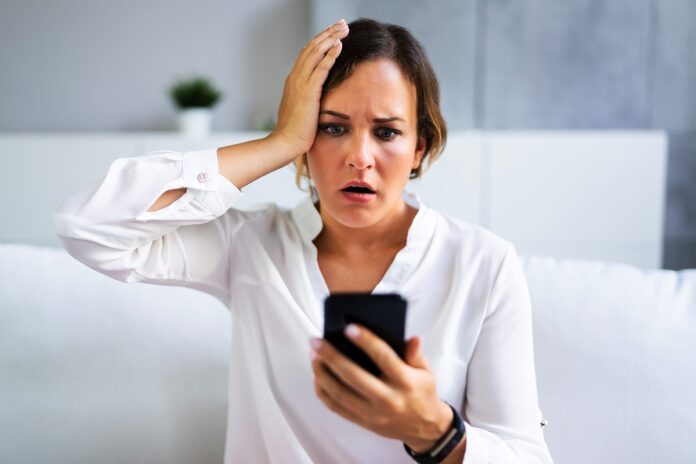In the age of social media, influencers wield more power than ever, shaping public opinion, driving consumer behavior, and often determining the success or failure of a brand’s reputation. But with great power comes great responsibility—or at least, it should. While many influencers use their platforms to promote genuine messages or products, an increasing number are taking a more nefarious route, using fear-mongering tactics to build their following at the expense of brands.
These influencers often distort facts or misrepresent data, creating fear-based narratives that scare consumers into believing their everyday products are unsafe. Their goal? To drive traffic, secure affiliate sales, and enhance their personal brand by tearing down others. While this strategy can be profitable for the influencer, it’s incredibly damaging to the brands caught in the crossfire.
This type of manipulation not only undermines the trust between consumers and businesses but can potentially cause serious financial harm. For brands, understanding how to navigate these attacks and explore legal recourse has never been more critical. Let’s take a closer look at three prominent examples of fear-mongering influencers who have dishonestly attacked brands for personal gain and what businesses can do to fight back.
Tamara Rubin (Lead Safe Mama): Fear-Based Marketing and Lead Tests
Tamara Rubin, better known as “Lead Safe Mama,” has positioned herself as an advocate for lead poisoning prevention, primarily targeting parents concerned about the safety of household products. Using her platform, Rubin regularly claims that everyday items—dishes, toys, and kitchenware—are contaminated with dangerous levels of lead, often backed by her own questionable testing methods using an XRF scanner. While her messaging strikes a nerve with safety-conscious parents, the issue is that scientific data do not always support Rubin’s claims.
The handheld XRF scanner she uses detects the presence of lead but cannot determine whether the detected levels are dangerous or even capable of causing harm. Rubin’s posts often overlook this critical nuance, which paint all lead detection as toxic and unsafe. The problem arises when Rubin directs her followers to specific “safe” products, often linked to affiliate marketing programs, profiting from the fear she stokes.
For brands, this kind of influencer attack is particularly harmful. Tamara Rubin has encouraged her followers to target businesses that sell the products she condemns, leading to a barrage of negative reviews, social media posts, and even boycotts. Companies that fully comply with safety regulations are suddenly forced to defend themselves against baseless claims, damaging their reputation and diminishing consumer trust.
The ethical implications here are significant. Rubin’s actions go beyond merely expressing an opinion—they actively mislead consumers and encourage hostility toward brands, benefiting her financially. Her success is built on manipulating her followers’ fears, turning responsible businesses into villains in worried parents’ eyes.
The Wellness Warrior: Faking “Natural Health” Dangers for Affiliate Sales
Another prominent figure in this space was an influencer named “The Wellness Warrior.” Known for advocating clean, toxin-free living, she’s built a large following by promoting the idea that conventional beauty and skincare products are full of dangerous chemicals. Like Rubin, her posts are designed to tap into consumer fears, with headlines like “Are Your Beauty Products Poisoning You?” and “The Hidden Toxins in Your Skincare.”
The problem? Her claims are rarely backed by credible evidence. Instead of relying on peer-reviewed research, she amplifies fringe studies or cherry-picks data to fit her narrative. She regularly accuses major skincare brands of using harmful chemicals without any substantial proof. Once she’s convinced her followers that their current products are toxic, she conveniently offers “safe” alternatives—usually through affiliate links to niche, expensive brands.
This strategy is effective but highly unethical. By planting the seed of fear in her audience’s minds, she steers traffic away from established, reputable brands and toward the products she profits from. The damage can be profound for brands targeted by these influencers. Not only do they lose sales, but their brand equity—built on years of consumer trust—can be eroded almost overnight.
The impact of this kind of influencer attack isn’t just reputational. It’s financial. Brands spend significant resources building customer loyalty, refining their products, and ensuring compliance with safety standards. But when a fear-mongering influencer spreads misleading information, that investment is compromised. Consumers, unsure of what to believe, may turn away from products they once trusted.
The Plastic-Free Guru: Spreading Fear About Plastics in Food Containers
A third example of how fear-based influencers are damaging brands is the case of the “Plastic-Free Guru,” an online personality who advocates for eliminating all forms of plastic from daily life. This influencer has made a name for herself by repeatedly claiming that all plastic food containers—even BPA-free ones—leak harmful chemicals into food, posing significant health risks.
Her posts feature alarming language and often cite obscure or discredited studies to back up her claims. Despite the lack of credible scientific consensus, she urges her followers to ditch plastic products entirely and replace them with the “natural” alternatives she conveniently links to—again, through affiliate sales. Her attack on mainstream plastic food container brands is relentless, and her followers are more than willing to spread her message on social media.
For brands that manufacture BPA-free and FDA-compliant plastic containers, this kind of fear-mongering is a direct threat to their business. The ethical concern is clear: the influencer is spreading misinformation to push her personal agenda, with little regard for the real safety data that shows modern plastics are rigorously tested and safe for consumer use. Once again, the focus isn’t on providing real value to her followers—it’s on driving traffic to the products she endorses.
The Legal and Ethical Recourse for Brands
For brands targeted by fear-mongering influencers like Tamara Rubin, The Wellness Warrior, and the Plastic-Free Guru, there are several ways to respond. While legal action is one option, the specifics can vary depending on the situation. If a company believes that false or misleading information is damaging its reputation or sales, they may explore ways to hold the influencer accountable. This could involve pursuing remedies that help address the harm caused, though legal action can be complicated and isn’t always the best first step.
Many companies choose to focus on protecting their reputation by being proactive. This includes closely monitoring social media, quickly addressing misinformation, and engaging directly with consumers to set the record straight. Being transparent, providing accurate safety information, and showing a commitment to product quality can go a long way in rebuilding trust when influencers spread fear-based or inaccurate claims.
Ultimately, brands affected by these tactics must be prepared to defend themselves, both publicly and privately. While influencers may benefit from the reach and immediacy of social media, brands that remain transparent and consistent in their messaging can mitigate some of the damage and maintain their standing with consumers.







